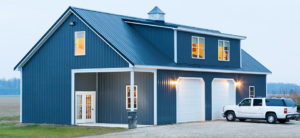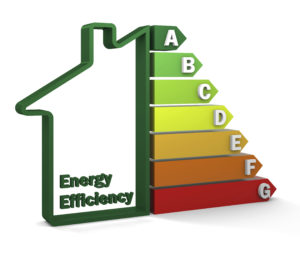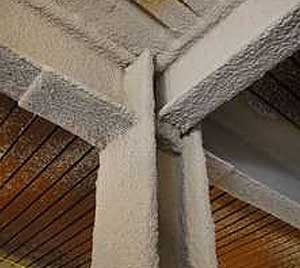Sound Proofing
If you live near a busy street or an airport, you know all about airborne sounds – the unwanted noises that can invade your living space. Foam Works spray foam insulation is an effective barrier to airborne sounds.
- Sound Proofing
- Commercial & Agricultural
- Residential Application
- Steel Framed Buildings
- Energy Efficiency
- Mold & Mildew Prevention
- Fire Proofing
- Dust & Pollen
Sound Proofing
 Foam Works air sealing qualities can reduce the amount of airborne sound penetrating your home. If you live near a busy street or an airport, you know all about airborne sounds – the unwanted noises that can invade your living space, hindering your comfort and enjoyment. Foam Works spray foam insulation is an effective barrier to airborne sounds. Its superior fit makes it an ideal sound proofing system, reducing airborne sound transfer through the roof, floor and walls. Outside noises such as road noise, road traffic, aircraft, and trains stay outside. Inside, there are far fewer complaints about next door or next door noises.
Foam Works air sealing qualities can reduce the amount of airborne sound penetrating your home. If you live near a busy street or an airport, you know all about airborne sounds – the unwanted noises that can invade your living space, hindering your comfort and enjoyment. Foam Works spray foam insulation is an effective barrier to airborne sounds. Its superior fit makes it an ideal sound proofing system, reducing airborne sound transfer through the roof, floor and walls. Outside noises such as road noise, road traffic, aircraft, and trains stay outside. Inside, there are far fewer complaints about next door or next door noises.
Commercial & Agricultural
Key Benefits:
- Eliminates distractions from noise and odor infiltration
- Improves stability of temperature and humidity
- Doesn’t deteriorate over time
- Won’t cause corrosion or rust
Capabilities
Foam Works, LLC can improve your bottom line and eliminate some of the hassles that typically plague commercial and agricultural buildings.
 Eliminates noise complaints in multi-dwelling units
Eliminates noise complaints in multi-dwelling units
Using spray foam insulations from Gaco between floors and walls of schools, office buildings, apartment buildings, hotels, motels, etc. effectively reduces distractions due to noise and odors. By eliminating air leakage, you eliminate the ability for these airborne annoyances to travel.
Improves stability of temperature and humidity
Maintaining a consistent temperature and humidity level is often the number one concern of facility managers. These superior products will allow you to do just that thereby extending the life of your building, mechanicals and reducing the incidence of spoiled inventory.
Won’t deteriorate over time
Spray foam insulations from Gaco actually offer a return on investment. The savings over time will more than pay for the initial investment and unlike other insulation materials typically used in commercial and agricultural buildings, they don’t sag, settle or deteriorate over time making a permanent solution. As well, you won’t have to worry about corrosion or rust.
Residential Application
If you’re building a new home, consider the following:
You will likely live in your new home for more than 20 years, and the up front cost of spray foam will pay for itself in usually less than 8 years. And once you’ve insulated your home, it’s there for good.
- Spray foam insulation creates a sound barrier making your home quieter from outside noises.
- Spray foam virtually eliminates drafts making your home more comfortable.
- Spray foam helps to keep pollen, mold and mildew from your home’s interior thereby reducing the affects of seasonal or chronic allergy concerns.
- Spray foam insulation reduces fossil fuel consumption and that’s good for the environment.
Capabilities
 Foam Works, LLC offers safe and effective remediation solutions, and has partnered with other local businesses to ensure that we can help you create a safe and healthy environment. Installed with other trades on site at the same point in construction when traditional insulation would be installed. Performs up to 50% more energy efficiently. Eliminate mold(s) and mildew by removing old insulation or install insulation in empty walls to improve energy performance and indoor air quality.
Foam Works, LLC offers safe and effective remediation solutions, and has partnered with other local businesses to ensure that we can help you create a safe and healthy environment. Installed with other trades on site at the same point in construction when traditional insulation would be installed. Performs up to 50% more energy efficiently. Eliminate mold(s) and mildew by removing old insulation or install insulation in empty walls to improve energy performance and indoor air quality.
Eliminate Mold and Mildew
Spray foam insulation offers no food value and cannot support bacteria or fungal growth. The effective air-sealing characteristic prevents the movement of hot air to the cold parts of the walls, preventing condensation from taking place within the wall cavities. The elimination of condensation within the wall assemblies prevents the growth of molds and mildew.
Insulating Older Structures
Our experts and partners understand the nuances of working in period sites, and take the necessary precautions. Original fixtures and moldings are carefully protected during the installation.
Drafts, Temperature and Humidity
Spray foam insulation’s air-seal properties eliminate air infiltration, the cause of uncomfortable drafts. The result of insulating with products from DEMILEC (USA) is even levels of temperature and humidity, leading to a more comfortable setting.
Steel Framed Buildings
Key Benefits:
- Saves time and money
- Won’t cause corrosion or rust
- Fills any type of cavity
Capabilities
Steel it. Foam it. Forget it. Spray foam insulations from Gaco are single-application, permanent solutions to insulating metal buildings and metal frame construction.
Saves Time and Money
Because they are a single-application permanent solution, a 2,500 sq. ft. building can be insulated in less than a day, saving time. No special framing or additional air sealing is required, saving you money. The dramatic improvement in energy performance will quickly pay for the cost of using this product.
Won’t Cause Corrosion or Rust
Metal frame construction presents a unique set of challenges above and beyond the usual moisture-related problems. By air sealing with spray foam insulations from Gacp , those problems are a thing of the past!
Fills Any Type of Cavity
These products are sprayed as a liquid expanding up to 120 times the volume within seconds. That expansion allows them to fill every void, no matter how small, including C-channels and “hat” channels without any special application techniques.
Energy Efficiency
Save Money with Spray Foam Insulation. The U.S. department of energy claims that heating and cooling accounts for over half an average home’s energy expense, making climate control one of the largest expenses of home ownership outside of the mortgage. While modern technology has greatly reduced the energy required for heating and cooling equipment to function, the most effective way to cut costs is to actually reduce the demand upon the equipment with insulation. Expanding spray foam insulation is by far the most efficient method of insulating a traditionally built structure.
The cost of poor insulation

United States energy labs have determined that air infiltration wastes nearly 40% of every dollar spent on climate control. Similar studies demonstrated that nearly 30 billion dollars was spent on energy wasted through air infiltration or convection losses in 1984 alone. Insulation code requirements have since been increased to help rectify the problem, but infrared imaging technology has revealed that increased R-values in traditional insulation has done little to reduce the losses through convection. Spray foam insulation expands to nearly one 100 times its original size, filling every crack, creating an air tight foam seal, virtually eliminating air transfer through the material itself.
Spray foam Insulation as an investment
The up front cost of spray foam insulation is slightly higher than traditional insulating techniques, but this initial expense is one of the surest investments a homeowner will ever make. Spray foam insulation can reduce energy consumption enough to recoup the initial cost in less than three years at the current rates. Since the cost of energy is consistently rising, the expense will most likely become annual savings in even less time, and these savings will continue to increase in proportion to the cost of energy.
The savings of spray foam insulation
The immediate savings from spray foam insulation are apparent in the monthly utility bills. The foam seal created by spray foam insulation can reduce air infiltration by over 90%, translating to 30-40% reduction in energy costs when compared to traditional insulation. In conjunction with efficient HVAC equipment and other environmentally responsible designs, spray foam insulation can save nearly 70% of an average home’s energy consumption. These immediate savings will only increase through time. The department of energy predicts that energy consumption will increase by 1.5% annually through the year 2020 as the availability of fuel sources simultaneously decreases, making energy conservation techniques like spray foam insulation a major concern for the home construction industry. The government and private organizations recognize the importance of this issue and are offering further savings to the owners of efficient homes. Spray foam insulation can help you qualify for a low rate efficient home mortgage (Information available at the FCIC website), and there are tax incentives available for energy conscious homes.
Mold & Mildew Prevention
Reasons to choose Foam Works for a healthier home:
- Completely air seals buildings creating a comfortable, draft-free environment
- Prevents condensation, thus eliminating the breeding ground for mold and mildew
- Locks out dust, allergens, odors and pollutants
- Is ideal for individuals who are chemically sensitive or suffering with allergies or asthma
- Isolates your living space from toxic garage fumes
- Is water-based – Does NOT contain any formaldehyde, CFCs, HCFCs or VOCs
- Is flame retardant – contributes no fuel in the event of a fire
- Offers absolutely no food value to mold or insects
Spray Foam has a sealed thermal envelope and when applied, it fills each cavity and void. It can improve the overall comfort and health of the residents because there are few loose fibers moving around. By reducing air infiltration, this product can eliminate dust and harmful, household mold and mildew. Spray Foam Insulation provides the family with a healthier, indoor environment. The benefits will eventually decrease the cost. This material will adhere to almost every material such as wood and steel.
It is fairly easy for water to leak into basements and form permanent puddles on the ground, which will cause mold and mildew thrive. Spray foam insulation works well against water and moisture because it expands to fit the space. It does not chip and crack over time. This is the leading cause of mold in basements; it isn’t that the insulation was improperly installed or inadequate, but that it cracked over time. These cracks are responsible for moisture getting in.
Spray Foam insulation also helps control moisture condensation because it does not shrink or settle. It is fire resistant and reduces heating and cooling costs significantly and its thermal seal keeps cold air in and unwanted air out. It has also been known to improve indoor air quality, thereby decreasing the likelihood of allergies. It also has high quality sound control, and significantly reduces dust, mold and mildew accumulation. Most importantly, the spray foam has been known to help the economy and the environment by using recycled materials in the foam. The containers are usually recycled. Those who use spray insulation are committed to providing quality renewable resource based building materials. The foam can help families save on their energy bills. Some people have claimed to save from 20 per cent to 40 per cent of their utility bill every month, depending on where they live. Thus it saves money and can help protect the planet too.

Fire Proofing
Fire Resistant Applications Include:
- Fire resistant installation of window and door frames
- Fire and smoke resistant sealing of connections between walls, ceilings and floors
- Sealing of all openings in roof constructions
- Sealing of cable and pipe penetrations in walls
- Improving thermal insulation in heating and cooling systems
Fire resistant foam insulation contains fire retardant, and some are specifically formulated for fire resistant use. If you need a fire resistant foam for insulation, be sure to choose one specifically marketed as such. These products possess a higher degree of fire resistance than standard foam insulation.
Foam Works uses foam sealant and insulating products that contain fire retardants. These foams are intended to resist flaming, and slow flame spread. However, they cannot stop a fire from spreading indefinitely.
It’s all too easy for an accidental spark to start a blaze. And we all know weather can conspire to prolong and expand the flames. However, using our foam insulation with a fire protection system offers defense against smaller blazes, and as easy as spraying in insulation.
As part of a fire protection system, Foam Works spray foam insulation means you don’t have to worry about air pockets in the foam where combustibles create fire hazards. You also don’t have to fear flames getting into unfilled pockets to either burn the structure beneath or become hotbeds should a fire occur. Additionally, Foam Works spray foam insulation keeps air out, preventing more air from contributing to dangerous backdrafts.
One of the best fire safety features about Foam Works spray in foams is that the material itself doesn’t burn. Even if flames somehow get into the insulation, it doesn’t catch fire. Regardless of exposure time, the flames never fully take hold. Considering fire damage costs, charring is a more affordable trade off.
Other products haven’t outlasted our spray foam’s fire resistant insulation in fire tests. Clearly, using Foam Works spray foam as part of your fire protection is one of the most effective ways of protecting your home, building, or steel frame building. The benefits are clear from the tests. Foam Works foam systems for fire protection are a smart and efficient choice for any structure.
Fire hazards are a concern for any building or home owner. Creating fire safe structures is always a primary consideration. Contact Foam Works LLC. to see how our products can serve your needs.
Dust & Pollen
 In recent years several serious respiratory illnesses have been linked to pollutants found in the air where we live and work. Indoor air pollution has had tragic consequences for residential homes and led to expensive lawsuits.
In recent years several serious respiratory illnesses have been linked to pollutants found in the air where we live and work. Indoor air pollution has had tragic consequences for residential homes and led to expensive lawsuits.
Poor indoor air quality, even in less drastic circumstances, can have adverse effects on the quality of life or the productivity of a worker. Studies by the environmental protection agency have found that pollutant concentrations inside a building can be 2-5 times higher than outside, exaggerating even a minor irritant. These irritants have two major sources, unwanted air infiltration and chemical pollutants present in the building materials. Spray foam insulation reduces or eliminates both of these sources.
Air infiltration and indoor air quality
When spray foam insulation is applied, it expands to nearly 100 times its original size, filling every crack, and creating an air tight foam seal. An air tight building does require special concern for the ventilation system, but it virtually eliminates the infiltration of unwanted air. Uncontrolled air infiltration can introduce allergens such as dust and pollen or harmful gasses such as carbon-monoxide from nearby roads and parking lots to the indoor air. Spray foam’s airtight seal helps prevent the direct infiltration of harmful irritants, and its low air permeability properties help reduce the negative pressure of an interior structure’s ability to draw air and vapor through the material itself. The reduction in vapor infiltration and condensation also helps reduce the proliferation of mold and the health risks it presents.
Building materials and indoor air quality
Asbestos was once a common insulator until the health risks became apparent. Fiberglass was the immediate substitute, but both asbestos and fiberglass are particulate minerals. Fiberglass has since proven to have equally evident, although less severe, health risks.
Spray foam is a non-particle based material, and contains no micro-fibers or organic dust. Spray foam is also formaldehyde, HFCF, HFA, and HFC free. One or all of these harmful chemicals are present in nearly all traditional insulation materials.
